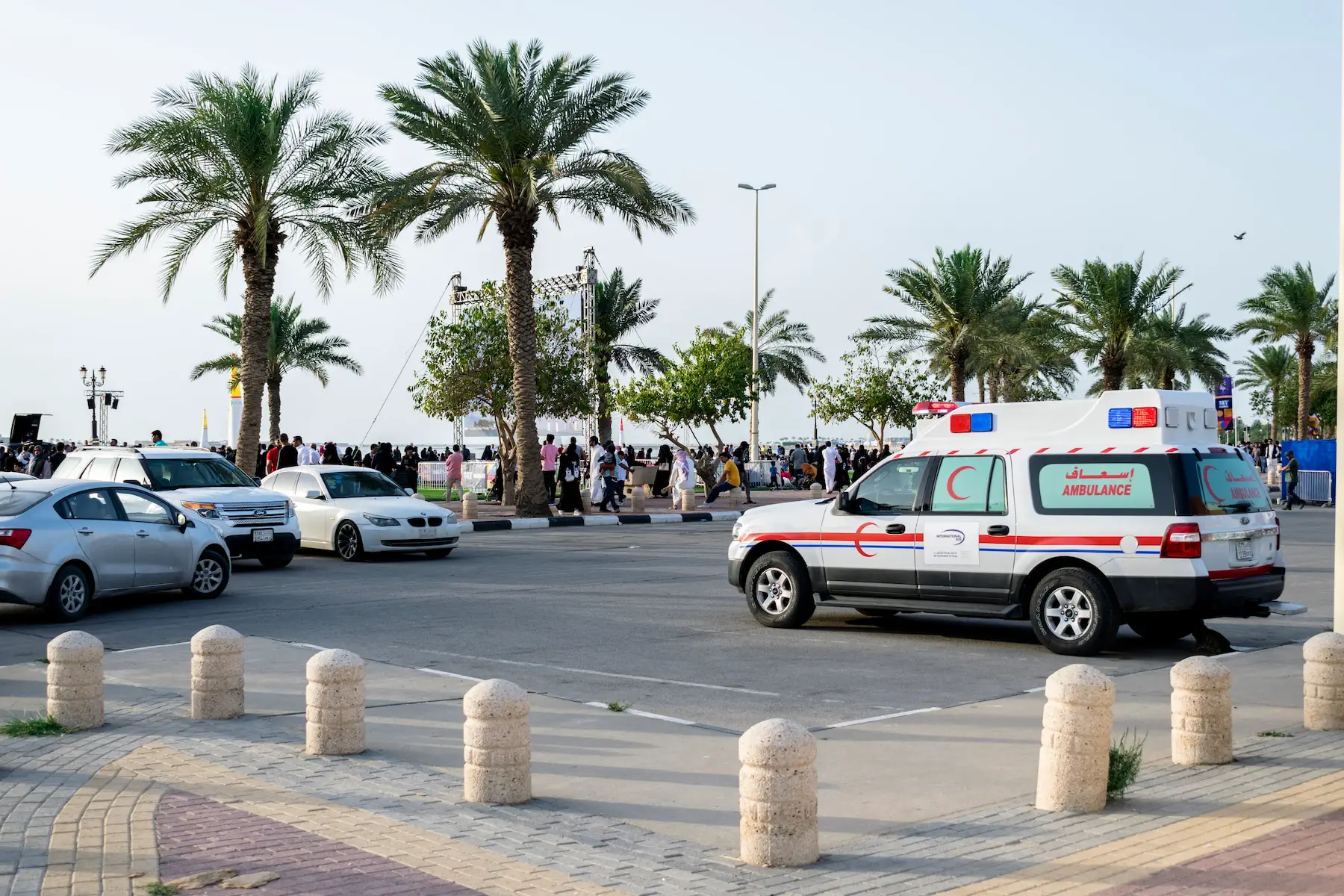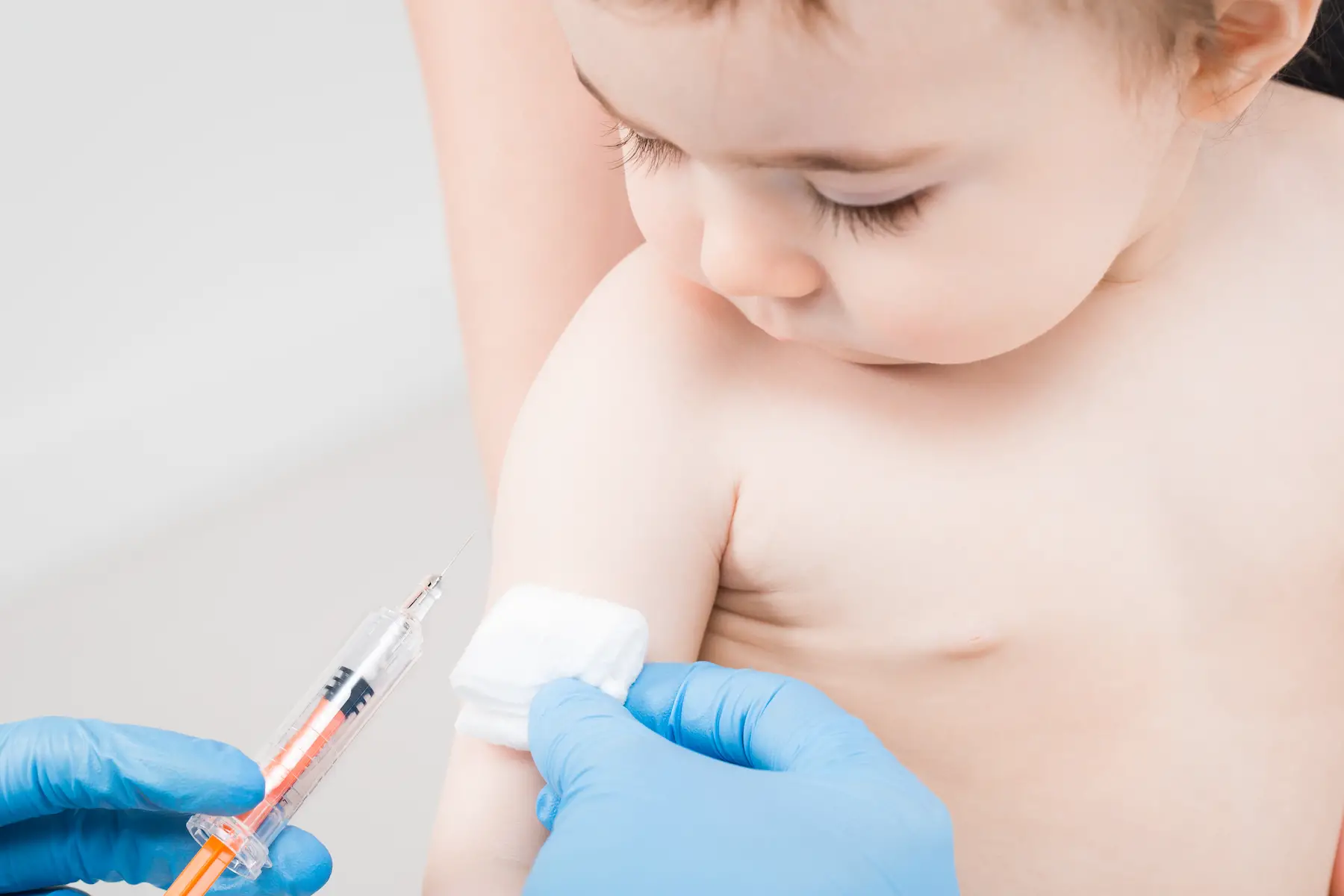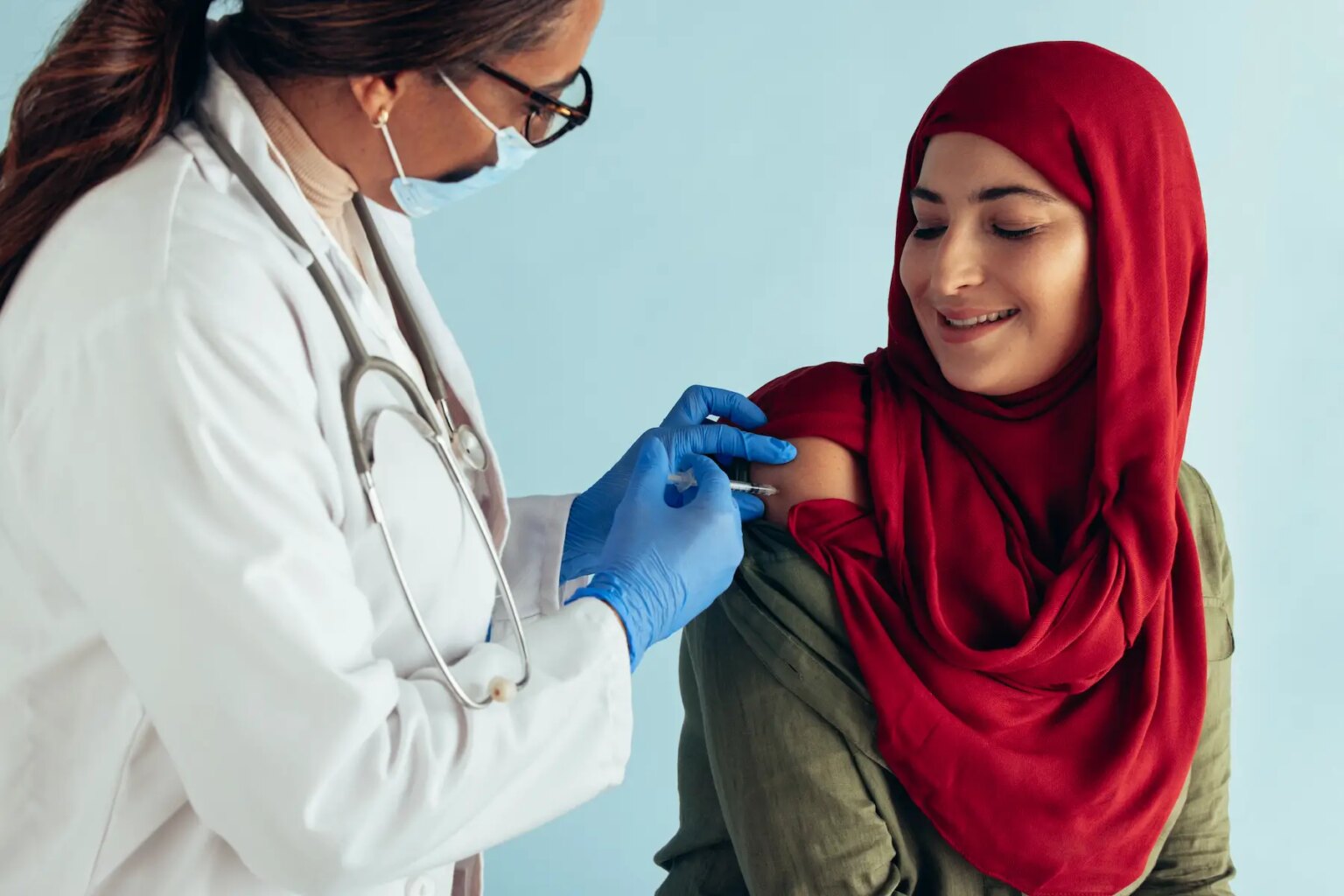If you’re moving to Saudi Arabia as an expat, it’s a good idea to make sure you know which immunizations are needed or recommended before you move, as well as how to access healthcare for you and your family once you get there.
Saudi Arabia’s healthcare system provides a good quality of care. The government has invested in healthcare over the past 20 years, in reaction to the country’s increased population. There’s a full vaccination program for children from the time they’re born, and vulnerable adults can also get extra vaccines.
This guide will explain everything you need to know about your family’s vaccinations in Saudi Arabia, including:
APRIL International
Looking for expat-friendly health insurance in Saudi Arabia? APRIL International has a long history of providing health coverage tailored to the unique needs of the expat lifestyle, ensuring peace of mind for you and your family. Whether you're relocating to Saudi Arabia or simply staying short-term, APRIL International has the right policy for you.
The Saudi Arabian vaccination system
The Ministry of Health is responsible for overseeing healthcare in Saudi Arabia.
Anyone can access healthcare, including vaccinations, in Saudi Arabia. However, the public healthcare system is not open to expats, therefore you must get private health insurance.

Employers will usually include private health insurance as part of their package, but coverage can vary so you may need to top this up yourself.
Private healthcare also comes with some benefits. Specifically, there are usually shorter waiting times, better access to English-speaking staff, and you can get some treatments that aren’t offered through the public healthcare system.
Around a third of hospitals in Saudi Arabia offer private healthcare, and these are the ones open to expats. There are also private facilities for specialist clinics, rehabilitation centers, and outpatient treatment centers.
Insurance for vaccinations in Saudi Arabia
Health insurance is a legal requirement for expats who move to Saudi Arabia. This is because public healthcare is free to Saudi citizens, but the country’s public healthcare system isn’t open to foreigners.
To get a residence or work permit approved, you’ll actually be asked for proof of private health insurance.
The Council for Cooperative Health Insurance (CCHI) oversees private health insurance in Saudi Arabia. It states that all private-sector employers should provide private health insurance for workers and their families.
However, employer’s private health policies can vary. Some only cover certain hospitals and clinics, or certain health services. This counts for vaccinations, too.
If your needs go beyond what’s covered by your employer’s private health insurance policy, you should be able to top it up.
Popular expat health insurance companies include APRIL International.
Bear in mind that, despite having private health insurance, it’s likely you’ll still have to pay a fee for treatments or care. That’s because employer health insurance tends to work on a co-payment system.
Expats on low wages, however, might not need compulsory health insurance. In this case, your sponsor will either register you with a health center, or will pay for any medical treatments.
Vaccinations for children in Saudi Arabia
Firstly, if you’re having a baby in Saudi Arabia, make sure you’re aware of which vaccinations for children are mandatory from the time they’re born.
Your doctor will give you a vaccination card. This details all of your child’s vaccines, and the date they were administered. You should bring this along to all of your child’s vaccination appointments.

In Saudi Arabia, newborn babies often receive a BCG shot to protect them against tuberculosis, as well as their first Hepatitis B vaccine. You can then review further immunizations with your doctor.
Usually, babies get several vaccines when they’re two and four months old, and then immunizations are fairly regular until they reach two years old.
Children receive vaccinations in this order:
- BCG and Hepatitis B vaccines: at birth
- Pneumococcal conjugate, Rotavirus, Hepatitis B, IPV, Diptheria, Tetanus, Polio and HiB vaccines: two months old
- IPV, Diptheria, Tetanus, Polio, Hepatitis B, HiB, Rotavirus and Pneumococcal conjugate vaccines: four months old
- IPV, HiB, OPV, Diptheria, Tetanus, Polio, Hepatitis B and Pneumococcal conjugate vaccines: six months old
- Measles and Meningococcal disease vaccines: nine months old
- MMR, OPV, Pneumococcal conjugate and Meningococcal disease vaccines: one year old
- Hepatitis A, Diptheria, Tetanus, Polio, OPV, HiB, MMR and Varicella vaccines: 18 months old
- Hepatitis A: two years old
- MMR, Varicella, OPV, Diptheria, Tetanus and Polio vaccines: first year of primary school.
COVID-19 vaccination in Saudi Arabia
COVID-19 vaccinations are available throughout Saudi Arabia, and are free for residents and eligible people.
For more information on the COVID-19 vaccine, and what the vaccine rules are in Saudi Arabia, visit the Ministry of Health’s official COVID-19 site.
Vaccinations for special groups in Saudi Arabia
Groups of people who are considered to be medically vulnerable can be offered additional vaccinations to help protect them from diseases.
Elderly citizens and pregnant women may receive extra vaccines. Additionally, other special groups include:
- People with weakened immune systems due to receiving cancer treatments
- People with chronic illnesses
- Pilgrims
- Travelers who are going to infected areas

To protect mother and baby’s health, all members of a future mother’s household are advised to ensure that they’re up-to-date with vaccines before she becomes pregnant.
Before pregnancy, it’s recommended women should get the following vaccines:
- MMR vaccine
- Chickenpox vaccine
- Hepatitis B vaccine
- Influenza vaccine
- DTP vaccine (for tetanus, diptheria and whooping cough)
- HPV vaccine.
Please note that women should avoid getting pregnant within three months of receiving the chickenpox vaccine, and within one month of receiving the MMR vaccine.
You can get Hepatitis B, influenza and DTP vaccines while you’re pregnant, but the DTP vaccine should only be administered during the third trimester.
Travel vaccinations in Saudi Arabia
Before you travel to Saudi Arabia, you may need to provide evidence of certain vaccinations. It’s best to check with your nearest Saudi consulate if you’re not sure which vaccines you need. The Centers for Disease Control also provides travel vaccination advice.
All travelers arriving from areas affected by yellow fevers must have a yellow fever vaccination certificate.
You should make sure you’re up-to-date with routine vaccines such as chickenpox, polio, shingles and MMR before you travel.
In addition, recommended vaccines include:
- Typhoid
- Diptheria
- Tetanus
- Hepatitis A
- Rabies
- Malaria
Tuberculosis and Hepatitis B vaccines might also be necessary.
In addition, visitors arriving for Hajj or Umrah pilgrimages must get meningococcal meningitis vaccines. Other visitors may also need to get this shot.
Those arriving from polio-endemic countries must have a certificate showing proof of polio vaccine dated six weeks prior to departure.
Your health insurance may cover travel vaccinations; however, this depends on your provider and the plan you’ve signed up to.





